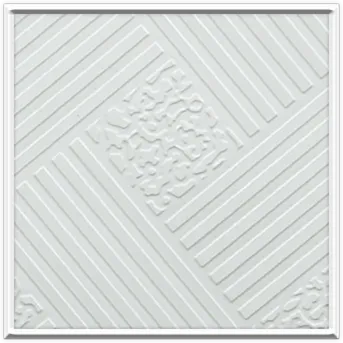10 月 . 18, 2024 05:45 Back to list
Ceiling Access Panel for Easy Maintenance and Utility Access Solutions
The Importance of Ceiling Access Doors in Construction and Maintenance
In the realm of construction and building maintenance, one often overlooks the significance of ceiling access doors. These seemingly simple installations play a crucial role in ensuring accessibility, safety, and efficiency in both residential and commercial spaces. This article aims to explore the importance of ceiling access doors, their various applications, and considerations for their proper installation and maintenance.
What Are Ceiling Access Doors?
Ceiling access doors are openings in ceilings that provide entry to concealed areas, such as attic spaces, ductwork, plumbing systems, and electrical components. They are typically made from metal, plastic, or drywall and can be flush-mounted or surface-mounted. These doors facilitate easy access for inspections, repairs, and routine maintenance tasks, which are vital for the longevity and safety of a building.
Accessibility and Convenience
One of the primary benefits of ceiling access doors is that they enhance accessibility. In many buildings, vital utilities are hidden from plain sight, making it difficult to perform maintenance work when necessary. By installing ceiling access doors, contractors and maintenance personnel can reach these areas quickly and safely. For example, HVAC systems often require regular checks and adjustments; ceiling access doors allow technicians to reach these systems without needing extensive scaffolding or ladders.
Moreover, in residential settings, access doors provide homeowners with the convenience of checking on insulation, wiring, or plumbing in their attics or ceilings without significant disruption. This ease of access not only saves time but also minimizes the costs associated with maintenance and repairs.
Safety Considerations
Safety is of utmost importance in construction and building management. Ceiling access doors can significantly contribute to a safer working environment. By providing a designated entry point, these doors reduce the need for hazardous maneuvers, such as climbing tall ladders or forcing entry into tight spaces. A properly installed access door minimizes risks associated with fall hazards and injuries related to navigating through confined spaces.
ceiling access door

Furthermore, safety codes and regulations often require specific access points to ensure that emergency personnel can reach critical systems swiftly in case of a fire or other emergencies. Having readily accessible areas can mean the difference between a quickly contained incident and a more severe situation that can escalate due to access issues.
Compliance with Building Codes
Another essential aspect to consider is that many building codes stipulate the installation of access doors for certain systems. For instance, building codes may require access to plumbing systems, electrical wiring, and HVAC systems to ensure that they can be maintained routinely. Failure to comply with such regulations can lead to fines and increased liability for building owners. Therefore, including ceiling access doors is not only a matter of convenience but also a legal obligation.
Choosing the Right Access Door
When opting for a ceiling access door, several factors must be considered to ensure it meets your needs. The size, material, and locking mechanism of the door are crucial aspects that can influence its functionality. For example, larger doors may provide more access but could also take up valuable space in limited areas. Material choice is essential; while metal doors offer durability, lightweight plastic options may be more suitable for residential uses. Additionally, the presence of a locking mechanism ensures that the access point can be secured when not in use, maintaining safety and privacy.
Maintenance of Ceiling Access Doors
Like any other part of a building, ceiling access doors require periodic maintenance. Regular checks for any damages, misalignments, or signs of wear can prevent larger issues from arising. Ensuring that the door opens and closes correctly and that any seals are intact can keep dust, pests, and moisture from entering the areas they conceal.
Conclusion
In summary, ceiling access doors are vital components in the efficient and safe operation of residential and commercial buildings. Their role in providing access to critical systems cannot be overstated, making them essential for compliance with safety regulations, convenience for maintenance work, and overall building integrity. Thoughtful consideration of their design and placement, along with regular maintenance, can significantly enhance a building's functionality and safety. Embracing these often-overlooked installations is key to effective building management and long-term operational success.
-
Revolutionizing Interior Design with Ceilings t grid Suspended SystemNewsOct.29,2024
-
Revolutionizing Ceiling Design with ceiling access panel with Gypsum Tile WaterproofNewsOct.29,2024
-
Revolutionizing Interior Design with PVC Gypsum Ceiling: A Comprehensive GuideNewsOct.29,2024
-
Elevating Interior Design with High quality Mineral Fiber Ceiling TilesNewsOct.29,2024
-
Revolutionizing Interior Design with PVC Gypsum Ceiling: A Comprehensive GuideNewsOct.29,2024
-
Elevating Interior Design with High-Quality Mineral Fiber Ceiling Tiles: A Comprehensive GuideNewsOct.29,2024







